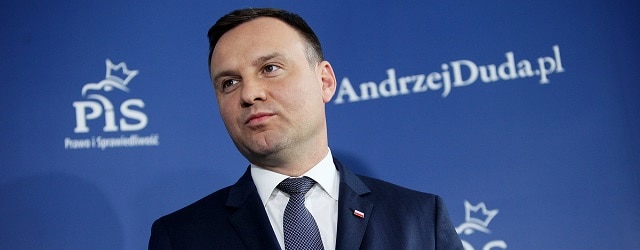Divided Poland narrowly re-elects theLaw and Justice party president.

The result was not the one that critics of the government nor, perhaps, the European Union, had been hoping for…incumbent President Andrzej Duda of the populist Law and Justice party (PiS) beat liberal Civic Platform (PO) candidate and Warsaw Mayor Rafal Trzaskowski in the second round of voting in July after a hard-fought presidential election.
Duda will pronounce the result an affirmation of his government’s anti-EU stance and ultra-conservative social policies, which play well in rural areas.
“Unable to attract moderates, Duda put all his effort into strengthening his conservative platform and reaching out for nationalist voters of the fourth candidate, Krzysztof Bosak,” says Naz Masraff, Europe director of the Eurasia Group.
“Jaroslaw Kaczynski, ex-prime minister, head of PiS and Poland’s de-facto leader will say Poles have voted in favor of his conservative revolution: a party-controlled state, interventionist economic policy and courts pliable to political power,” Masraff predicts. PiS will also see the vote as conferring public support for its policies ahead of an anticipated economic slowdown and probable further clashes with Brussels.
The campaigns, which inspired massive turnout (over 68%), produced the tightest result in the 30 years since the fall of Communism. Duda squeaked in with the support of just 51.2% of voters. Afterward, there was widespread talk of voting irregularities, including controversy over mail-in ballots, and complaints about the lack of a level playing field. A high-level legal challenge is possible.
The other worry for Duda is the chasm separating urban, liberal, young Poland and rural, conservative, older Poland, revealed so baldly by the tallied votes. Although Poland weathered the Covid-19 crisis relatively well so far, and its economy has been one of the least affected in Europe, Reuters’ predicted GDP contraction of around 5% will be painful for a country that hasn’t seen an economic reversal since the 1990s.
While parliamentary elections aren’t slated until 2023, the fact that Trzaskowski came so close to unseating an incumbent who was fully supported by all of the state’s resources—and after being nominated opposition candidate only in May—should worry Duda. His victory could yet prove pyrrhic.



